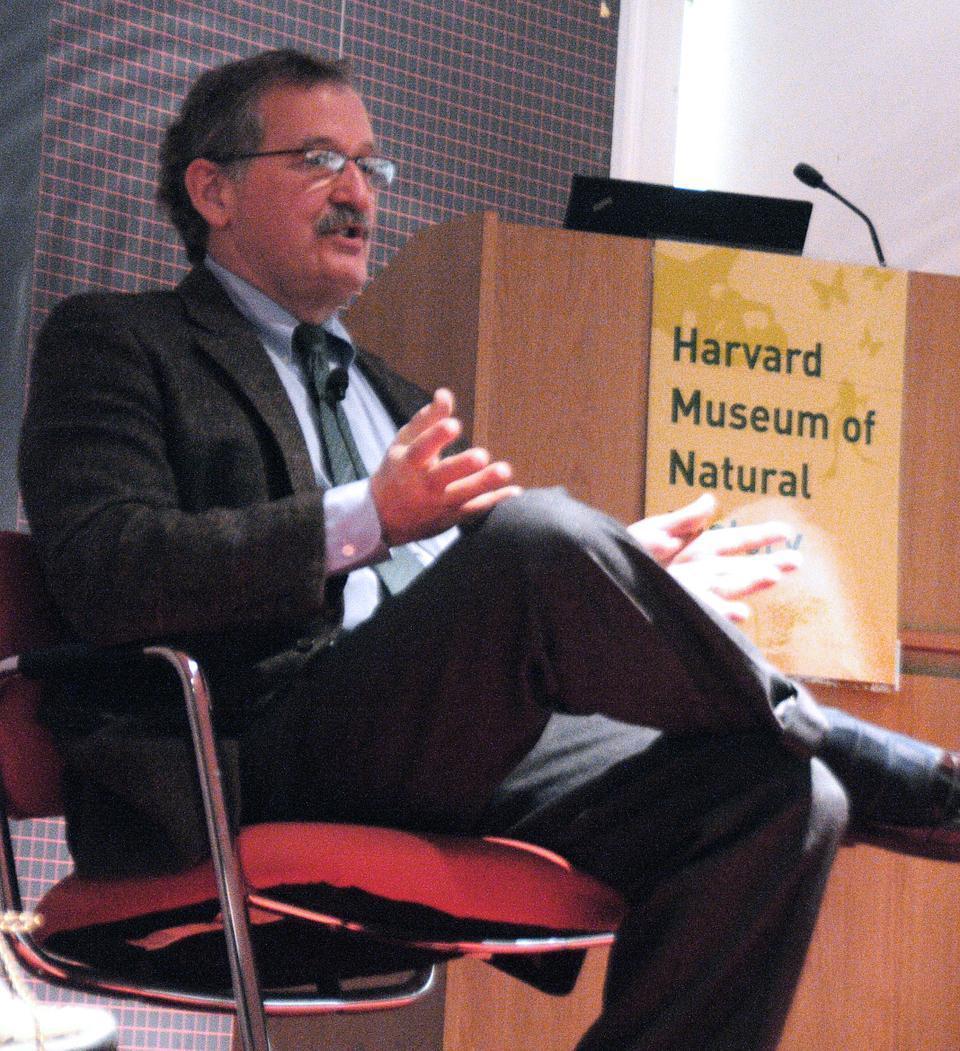
News
Harvard Grad Union Agrees To Bargain Without Ground Rules

News
Harvard Chabad Petitions to Change City Zoning Laws

News
Kestenbaum Files Opposition to Harvard’s Request for Documents

News
Harvard Agrees to a 1-Year $6 Million PILOT Agreement With the City of Cambridge

News
HUA Election Will Feature No Referenda or Survey Questions
Smithsonian Curator Analyzes Origins Of Food

A few hundred people crowded inside Geological Lecture Hall yesterday to hear Smithsonian curator Bruce D. Smith chronicle the evolution in human lifestyle from hunting and gathering to agriculture.
The lecture, entitled “Where our Food Comes From: The Origins of Agriculture,” was the second installation in the three-part “Food for Thought” series sponsored by the Harvard Museum of Natural History.
Smith discussed the slow transition of earlier humans from wild to domesticated food sources, focusing on pigs, corn, squash, and sunflowers.
“How long did it take humans to transition from a hunter-gatherer lifestyle to agriculture?” Smith asked in a slide.
He answered with an analogy.
“Our ancestors were cruising along in a Volkswagen bus, taking their time,” he responded, amid chuckles from the audience.
In his hour-long lecture, Smith also spoke about topics ranging from various areas in the world that independently domesticated plants and animals to methods that archeobiologists use to determine the time period during which certain seeds were domesticated.
Smith later delved into topics such as the domestication of cats and dogs.
“Cats and dogs were never really a prey species, but [they had a] mutually beneficial relationship [with humans]. Dogs have come a lot further into [that] relationship than cats,” Smith said.
Lauren Schumacher ’10, a molecular and cellular biology concentrator earning a secondary field in archeology, said she enjoyed the lecture.
“I thought it was a really interesting overview of where [domestication] happens and how we are looking at the big questions of when it happened, how it is,” Schumacher said.
Other audience members echoed Schumacher’s sentiments.
“I liked hearing him talk about why certain animals became domesticated,” Kevin Verbael ’10 said.
Tom Scanlon, the assistant director of public programs at the Natural History Museum, attributed the high turnout of Harvard students at the event to a high public interest in food and sustainability.
“It comes right down to it: Is there going to be enough food for the world?” Scanlon asked.
Want to keep up with breaking news? Subscribe to our email newsletter.
From Our Advertisers

Over 300+ courses at prestigious colleges and universities in the US and UK are at your disposal.

With innovative financial tools combined with financial education, Collegiate empowers students to take control of their finances and build confidence in their money management skills.

Serve as a proctor for Harvard Summer School (HSS) students, either in the Secondary School Program (SSP), General Program (GP), or Pre-College Program.

With an increasingly competitive Law School admissions process, it's important to understand what makes an applicant stand out.

Welcome to your one-stop gifting destination for men and women—it's like your neighborhood holiday shop, but way cooler.

Admit Expert is a premium MBA admissions consulting company, helping candidates secure admission to top B-schools across the globe with significant scholarships.
